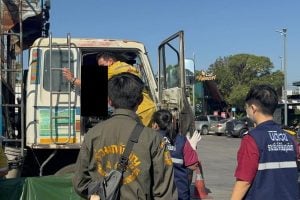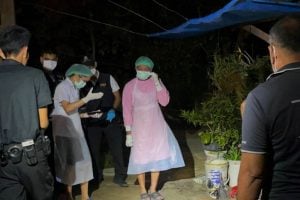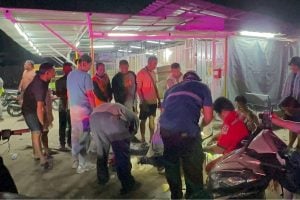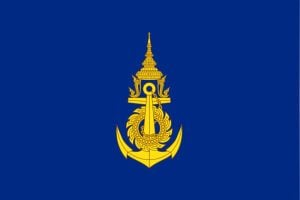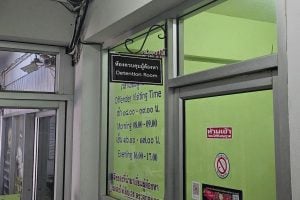Asia News Today | Covid cases surge in Asia, Sanctions against Russia & Human trafficking

Covid cases are still surging in many Asian countries, the US is rallying support from the region to support sanctions on Russia in the wake of yesterday’s incursion into Eastern Ukraine, the Australian PM responds to the Chinese laser targeting of one of its planes last week and a conference in Indonesia to address regional human trafficking.
—–
Starting off today with a quick Covid round-up in the context that, whilst much of the rest of the world is now moving on from Omicron surges that peaked in early January to early February, much of Asia is still on the rise with numbers well in excess of any Covid waves in the past. Singapore has reported over 26,000 new COVID infections yesterday…. 301 of them imported cases. Four more people have died in the island state whilst1,608 patients remain in hospital. Another South East Asian country seeing surging infection numbers in Indonesia which recorded 57,491 new infections over the past 24 hours. There were also 257 Covid-related deaths in the archipelago. South Korean cases are still surging, nearly hitting the 100,000 case mark over the past 24 hours. Vietnam, too has hit a new high today with 55,879 new infections. Malaysia is also showing an uptick with 27,179 today, and still on the rise. Brunei, with a tiny population of 460,000, has already registered its highest number of cases in the past 24 hours with 3,251. Hong Kong is also undergoing a big surge with 6,211 announced today. Japan has reported 55,903 new Covid infections although the trend there is now in a downward direction.
—-
The US administration is in talks with allies in Asia to garner their support for sanctions and export bans against Russia, as the initial international response mounts over Russian troops kicked off a quasi invasion in eastern Ukraine yesterday. Washington has so far received positive support from Singapore, Japan, and Taiwan for its plans to restrict exports into Russia. The three Asian countries are major producers of semiconductors, and other high-end technology that Russia has been dependent on over the past decade. The Foreign Direct Product Rule, as the policy is known, extends U.S. jurisdiction over products made with U.S. software or technology, even if those products are made abroad by foreign companies without other ties to the United States. If implemented it would cause a ripple effect reaching deep into the Russian economy, in a way traditional sanctions have not in the past…. Impacting Russia’s oil and gas sectors, defence and civil aviation industries, and even the import of cars, smartphones, and consumer electronics.
—-
The latest in the tit for tat response to a Chinese ship being laser targeted by a Chinese navy vessel last Thursday…. The Australian PM Scott Morrison says the Australian surveillance plane was just doing its job when it was… as he said… put under threat… with a laser from a Chinese navy ship. Beijing responded to the incident saying that the surveillance plane came too close and was regarded as a potential threat. Australia’s defence department claims the aircraft dropped sono-buoys, which can help detect submarines, following the laser incident, and that the surveillance devices were not a shipping hazard. The PM said that the surveillance planes had every right to be in Australia’s exclusive economic zone to keep a close eye on what people are up to. The Chinese responded, saying… Australia had used reconnaissance planes to take “provocative actions” against China on many occasions.
—–
Stock markets across Asia were a sea of red yesterday, while oil prices hit seven-year highs as Russia continues their incursion in the eastern parts of Ukraine. As the West now kicks off sanction, even higher energy and commodity prices are expected and more hawkish monetary policy measures which will likely disrupt the global economic recovery from the Covid pandemic. Brent crude oil futures jumped to a high of US$97.40 a barrel – their highest since 2014 and natural gas was up nearly 7 percent. Singapore Airlines and Dairy Farm shed 2.4 percent each, and Yangzijiang Shipbuilding lost 2.86 percent in its stock price. Hong Kong was the biggest casualty in the region with a 2.7 percent drop on fears of a new wave of regulatory scrutiny and Shanghai stocks were down nearly 1 percent. Japan’s markets lost 1.7 percent, while Taiwan and South Korea each shed 1.3 percent.
—–
The Philippines has signed a US$ 624 million deal to purchase 32 Black Hawk helicopters. It’s the largest military aircraft purchase under outgoing President Rodrigo Duterte. The deal was signed with the Poland-based aerospace manufacturer PZL Mielec, to acquire the S-70 Black Hawks, which can be used for troop transport, combat operations and disaster response. The deal includes training for pilots and maintenance crews and logistics backup.
—–
As part of efforts to resume a more normalised economy, Vietnam has reopened air routes to 20 countries and regions, compared to 28 in the 2019 winter flight schedule rep-Covid. The resumed routes included flights to Australia, China, Japan, South Korea, Singapore, France, Germany, Russia, and the US.
—–
Hong Kong is constructing four temporary community isolation and treatment facilities, or mobile cabin hospitals, for its rising numbers of Covid patients requiring medical treatment. Around 14,000 to 17,000 isolation beds will be available when these facilities at are fully put into operation. Since the fifth wave of the pandemic started in December, there have been 145 deaths in the territory, almost 60 percent of the total of the past two years.
—–
Indonesia’s Foreign Minister called for close cooperation for dealing with human trafficking while leading an international meeting in Paris last Monday. The Australian and New Zealand FMs served as co-chairs, and the meeting was also attended by senior officials from the United Nations High Commissioner for Refugees and the International Organisation for Migration. According to the Foreign Ministry, the steps to be taken will hopefully strengthen regional efforts to thwart human smuggling, human trafficking, and other transnational crimes. The Indonesian FM noted that the pandemic had raised the risk of human smuggling and trafficking, particularly the exploitation of children and women. She reiterated the significance of involving the business sector in helping ensure transparent supply chains, ethical recruitment, and fair compensation for workers, particularly in view of the COVID-19 pandemic’s impact on migrant workers.
Latest Thailand News
Follow The Thaiger on Google News:
